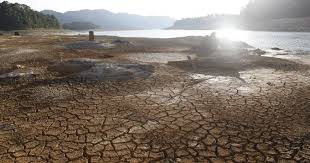By Muhammad Luqman
With little rains in the sight during the months of October, Pakistan continues to feel the brunt of climate change with unusual rise in the temperatures during day time.
“ Usually October and November are relatively driest months of the year, but this year, these are with dry in real terms. We had no rain in September and even we can’t predict any downpour in the days to come,” says Muhammad Riaz , Chief Meteorologist.
In Karachi and other coastal areas of the country, a heatwave like situation has been predicted from second week of October with temperature rising above 40 degree centigrade.
“Due to the developing low pressure area off Indian Coast in the Arabian Sea, the sea breeze along Pakistani Coastline will weaken. Under such conditions, temperatures along Pakistan coastal areas including Karachi will gradually increase during the next 4-5 days resulting into moderate heat wave conditions,” according to a warning issued by Pakistan Meteorological Department .
Pakistan usually receives 33 millimetres of rain in October and another 12 millimetres in November on average but this year it seems a remote possibility of receiving this amount of rain in these two months.
Currently, the country is facing a dry spell which is expected to continue at least till the mid of October this year, after which a short rain spell of low intensity is expected,” the meteorologist said. “Like previous year, this year again the country did not receive much rain during the latter half of of monsoon season.
The dry spell, if continues , the problem of water shortage may become more serious, having severe impact on the winter crops especially wheat and the health of people, who are already suffering from flu, cough and allergies due to the dry weather.
The Indus River System Authority (IRSA) has already estimated 20 per cent shortage in water share of Punjab and Sindh each in the Rabi season. Provinces have already started facing water shortage issues due to lower withdrawals.
If there are no significant rains in the country till January or February then this shortfall may exceed to 25 per cent against last year’s water shortage of 17 per cent during the corresponding period.
IRSA has asked the provinces to close non-perennial canals from October 5 (Friday) onwards which they usually close from October 15.















